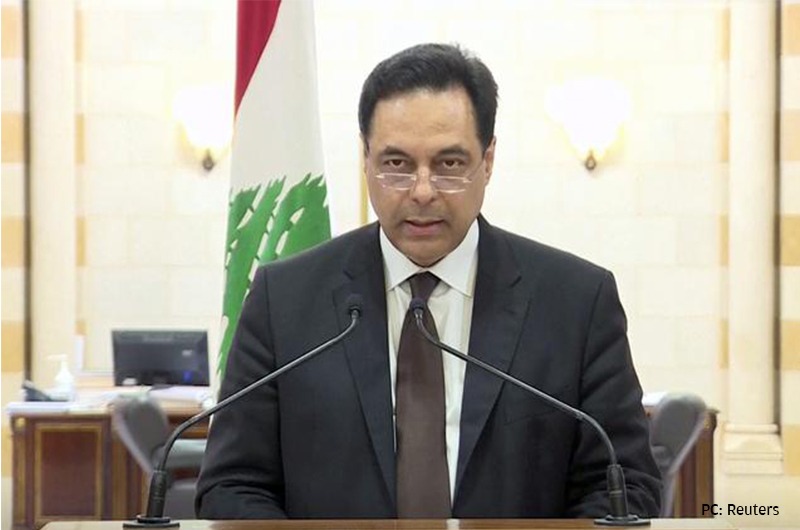One of the most deadly explosions that rocked the Lebanese capital, port city of Beirut, on the afternoon of 4 August 2020, has resulted in vitriolic destabilization of the social and political life in the country. The blast that was caused due to a fire that broke out in a warehouse in Beirut, killed over 200 people and left 6000 injured. The explosion was so intense that its tremors were felt in Cyprus, which is around 150 miles away from the port city.
The damage that the catastrophe brought about is not limited to only the number of people killed and injured but extends to about 3,00,000 other citizens who have been displaced from their homes due to the Ammonium Nitrate induced detonation. The widespread damage to life and property disintegrated an already struggling country to a far debilitating extent. The aftermath of the blast saw widespread anti-government protests that have been recorded as one of the most severe and violent public uprisings in Lebanon till date.
Lebanon had already been strained with the worst economic crisis in decades. The coronavirus emergency only worsened the financial situation in the country, leading to further job loss and social security issues among the angered public. The government was also facing constant accusations on grounds of corruption and severe antipathy coupled with flagrant negligence.
Last October, the nation witnessed a mass uprising in rebellion of the previous government that the citizens termed as a revolution. Post the popular uprising, in December, Hassan Diab was sworn in as the new Prime Minister, despite his government being backed by the controversial Hezbollah group. The country’s currency dipped by 70% in the wake of October protests, amidst the exacerbating crisis in the banking sector.
The systemic corruption, current lockdowns and now the Beirut blasts have cataclysmically impacted the languishing economy of the nation. The public confidence in state authorities and the inept government completely shattered as the institutional negligence reached its nadir in the form of reckless storage of 2,750 tonnes of ammonium nitrate in vicinity of a significant food source.
Push came to a shrug for the public when the cause of the Beirut blasts was revealed to be a carelessly heap of explosive chemicals, neglected by the authorities. The Prime Minister’s Office and Parliament Square were rampaged by angered protesters who pelted stones, lit fireworks and Molotov cocktail at the security personnel.
Following the protests, Lebanon’s government stepped down on Monday night. Prime Minister Hassan Diab announced his resignation and said that the blast was a “disaster beyond measure.” He compared the explosion to an “earthquake that rocked the country” and vouched that people’s will is the most supreme. Three of his cabinet monsters and seven MPs had already resigned earlier. Now Lebanon is faced with the challenge of electing their Prime Minister within a span of less than a year.









